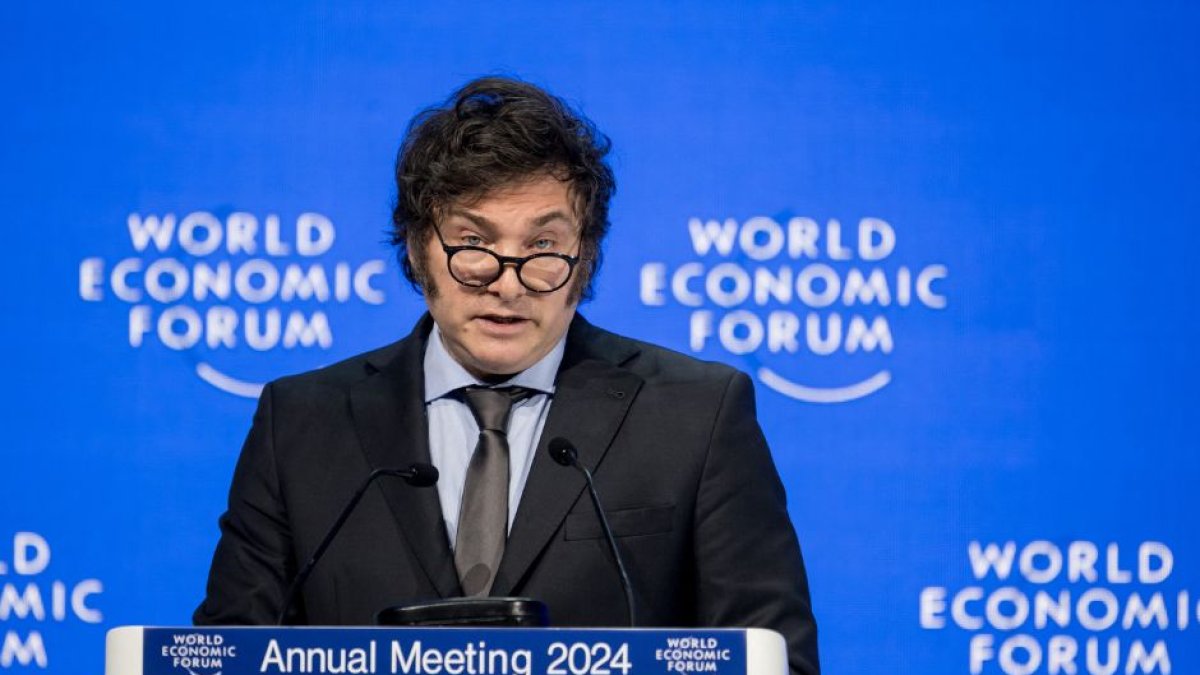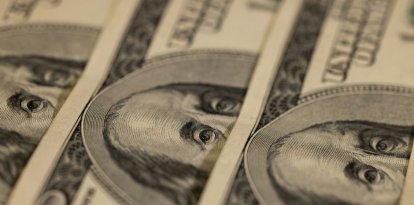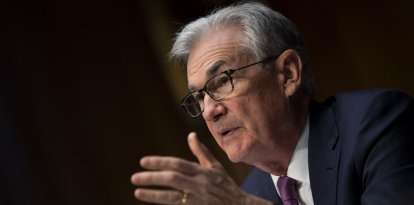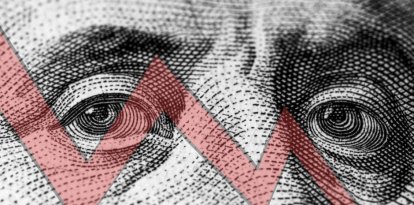Argentine government announces first quarterly surplus since 2008
Javier Milei celebrated the accomplishment, which achieved via a substantial reduction in government spending, including reductions in public works and redistribution to regional governments.

El presidente de Argentina, Javier Milei, pronuncia un discurso en la reunión del Foro Económico Mundial (FEM) en Davos el 17 de enero de 2024. (Foto de Fabrice Coffrini / AFP)
The Argentine government, led by President Javier Milei, announced Monday that it closed the first quarter with a fiscal surplus for the first time since 2008.
Milei broke the news on national television with marked joy. This fiscal surplus of 0.2% of GDP occurs after the first three months under the Libertarian president and his "chainsaw" method against public spending. Since coming to power, as he promised during the campaign, Milei has carried out a policy of heavy cuts to state infrastructure.
“This economic miracle of achieving a quarterly financial surplus after almost 20 years, having inherited the situation that we did, responds to what those who want the failure of this government usually say, to an enormous extent to what we called a 'chainsaw' during the campaign, and not as some say to the liquefaction of public funds, a method that has historically been used in our country," celebrated Milei from the Casa Rosada in Buenos Aires, the president's official residence. “The fiscal surplus is the cornerstone from which we will build Argentina's new era of prosperity,” he added, standing alongside several members of his government.
The fiscal surplus of 0.2% for Argentina represents about $300,000. The accomplishment comes after cuts of almost 75% of state transfers to regional governments in Argentina, as well as halting 90% of public works, and the popular policy of reducing the number of public ministries from 18, as under the previous government, to only nine. Argentine bonds increased in value shortly after the president's announcement.
For Milei, the reduction of public spending and of the large deficit was an obligatory step in his objective of restructuring the Argentine state. The president assured that public deficits cause inflation, his arch nemesis, which in 2023 in Argentina was the highest in the Americas, reaching 211.4% at the end of Alberto Fernández's presidency.
























